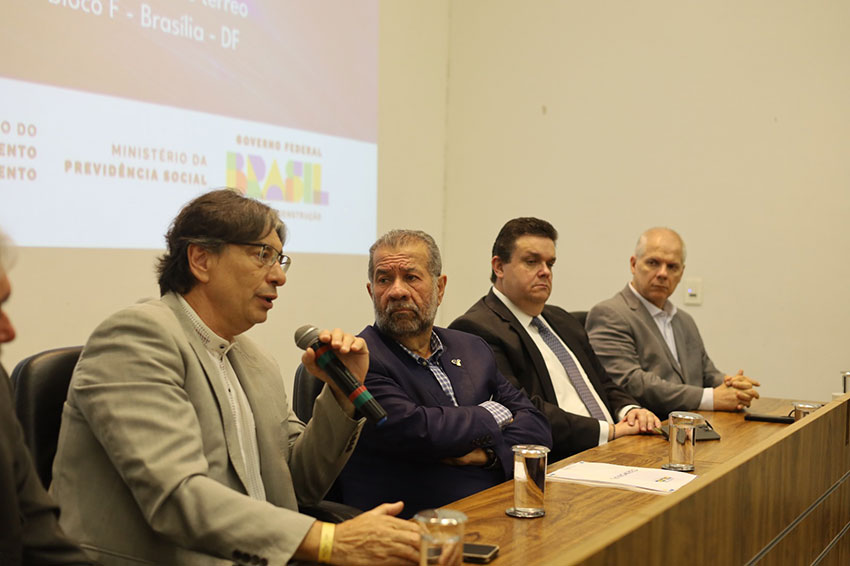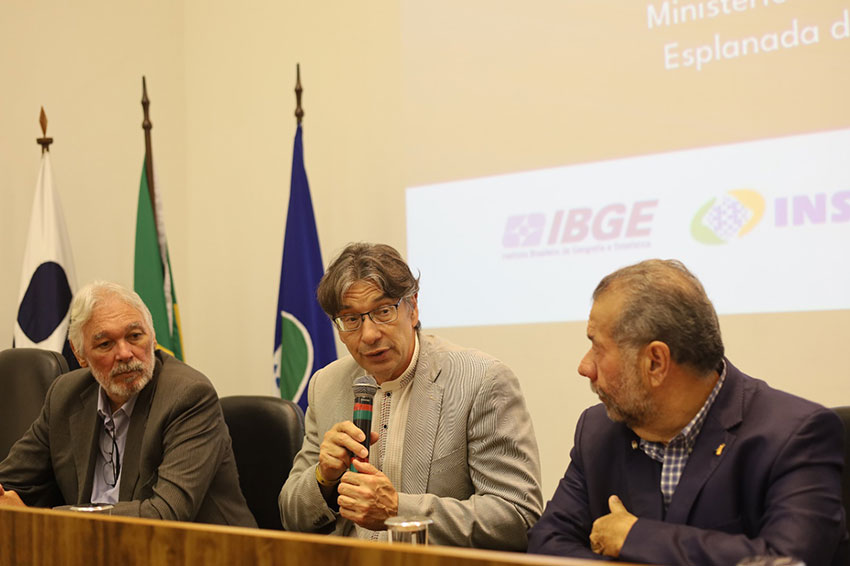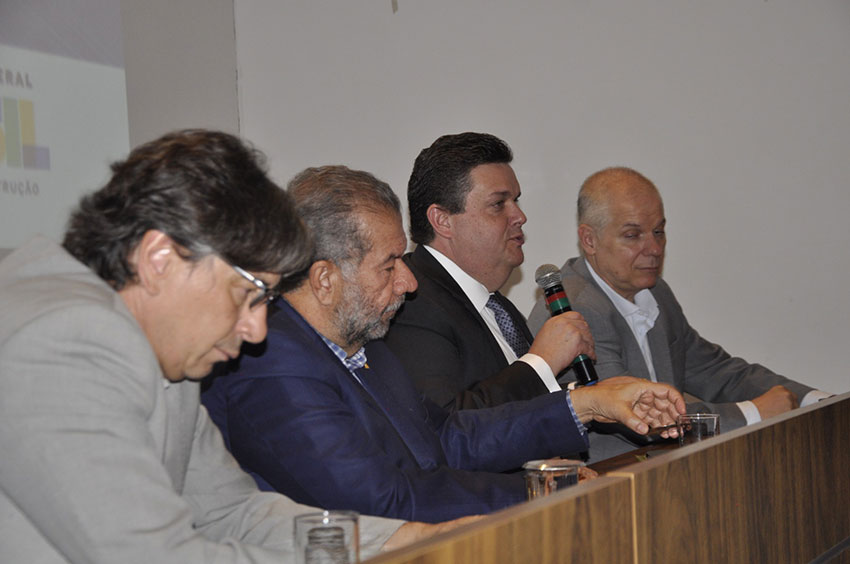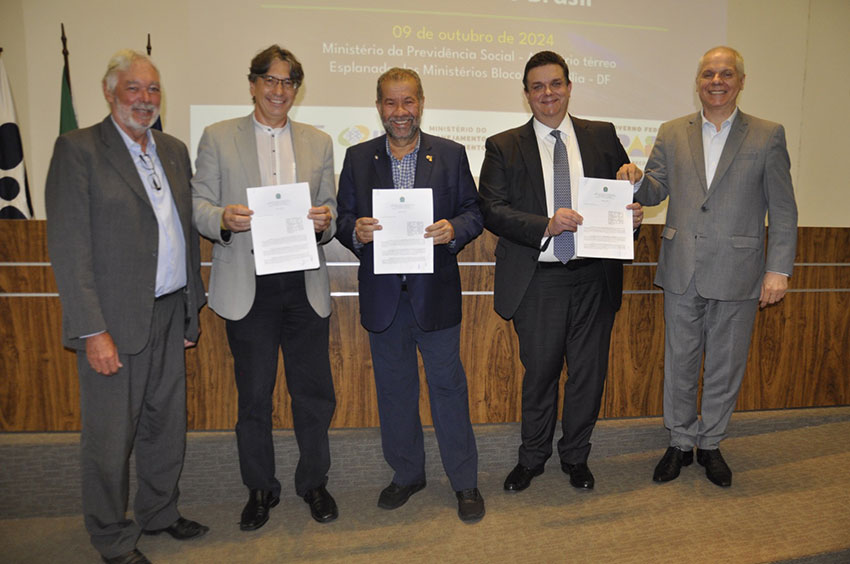Ministry of Social Security and IBGE discuss statistical, geoscientific and data governance model in Brasília (DF)
October 09, 2024 05h10 PM | Last Updated: October 11, 2024 04h06 PM

The Ministry of Social Security (MPS) and the Brazilian Institute of Geography and Statistics (IBGE) promoted, on Wednesday (9), the seminar “A new governance model for the statistical, geoscientific and data production in Brazil”, at the auditorium of the Ministry of Social Security, at Esplanada dos Ministérios (Ministries Esplanade), in the federal capital, streamed live on Digital IBGE.
The event was the first dialogue between the institutions for the sharing and management of data within the scope of the National System of Geosciences, Statistics and Data (SINGED). The IBGE was represented by president Marcio Pochmann and by the director of Information Technology (DTI), Marcos Mazzoni. The minister of Social Security Carlos Lupi, and the president of the National Institute of Social Security (INSS), Alessandro Stefanutto, also attended the event. As mediator of the discussion was the coordinator general of the IBGE’s Center for Information Documentation and Dissemination and the Coordination of Social Communication (CDDI/CCS), Daniel Castro. The participating institutions also signed a cooperation agreement.
The ministry of Social Security, Carlos Lupi, highlighted that “the IBGE is an institution that provides services to the Brazilian people and that deserves all support possible, as it represents a parameter for all the public policies in the country. This partnership is an instrument that will be a tour disposal to study all the reality of Brazilian social security, not only the financial reality, but the human one as well. The IBGE is a reason for pride and the safest source of data to portray Brazil, a fundamental basis to think about the future Brazil.”

Marcio Pochmann, president of the IBGE, remarked that “this agreement will give us the possibility of seeing Brazil from a different perspective. The survey and the data are necessary to restructure and redefine public policies. In this respect, the idea is to create a National System of Geosciences, Statistics and Data (SINGED) to combine the existing statistics, since each ministry has their respective database, but now we need to have an overall view.”
Pochmann also highlighted that "without data sovereignty, we have had a reduced capacity to influence of determine public policies of fundamental importance for the people in Brazil. Integration is something that affects us and that is why we are together here with ministries.”

Marcos Mazzoni, director of Technology of the IBGE, explained the intention of creating a sovereignty cloud. “It is a cloud no longer built in multinational companies, but based on open source software. The intention of the Institute is to have a Sovereign cloud so that we do not get dependent or open our information”.
The director considers that the SINGED “is an integration of public and private data intended to change the infrastructure of data Governance, so that we will have more effective participation of the State to unify and of the IBGE to validate the data.”
The president of the National Institute of Social Security (INSS), Alessandro Stefanutto, highlighted that the importance of the IBGE is to “enlighten society in relation to State planning. The Institute’s recognition goes beyond this agreement. The INSS considers this agreement will enlighten the making of better decisions and of more elaborated planning. The arrival of the IBGE will help us in surveys and scientific productions and also to fight fake narratives and arguments.”
Wolney Queiroz is executive secretary for the Ministry of Social Security, and says that “this partnership will be important for our 40 million beneficiaries and more than 60 million Brazilians who receive some kind of aid from INSS. The data produced will be relevant to understand the that will be even better understood in the future.”

IBGE sings cooperation protocol with MPS and INSS
During the seminar, the IBGE signed a cooperation protocol with the Ministry of Social Security (MPS), represented by minister Carlos Lupi, and with the Ministry of Social Security (INSS), represented by its president, Alessandro Stefanutto.

Marcio Pochmann mentioned that this document “sets a strategic partnership between institutions in the Brazilian State that will contribute even more to the production of public policies in order to build a better portrait of Brazil.”




















